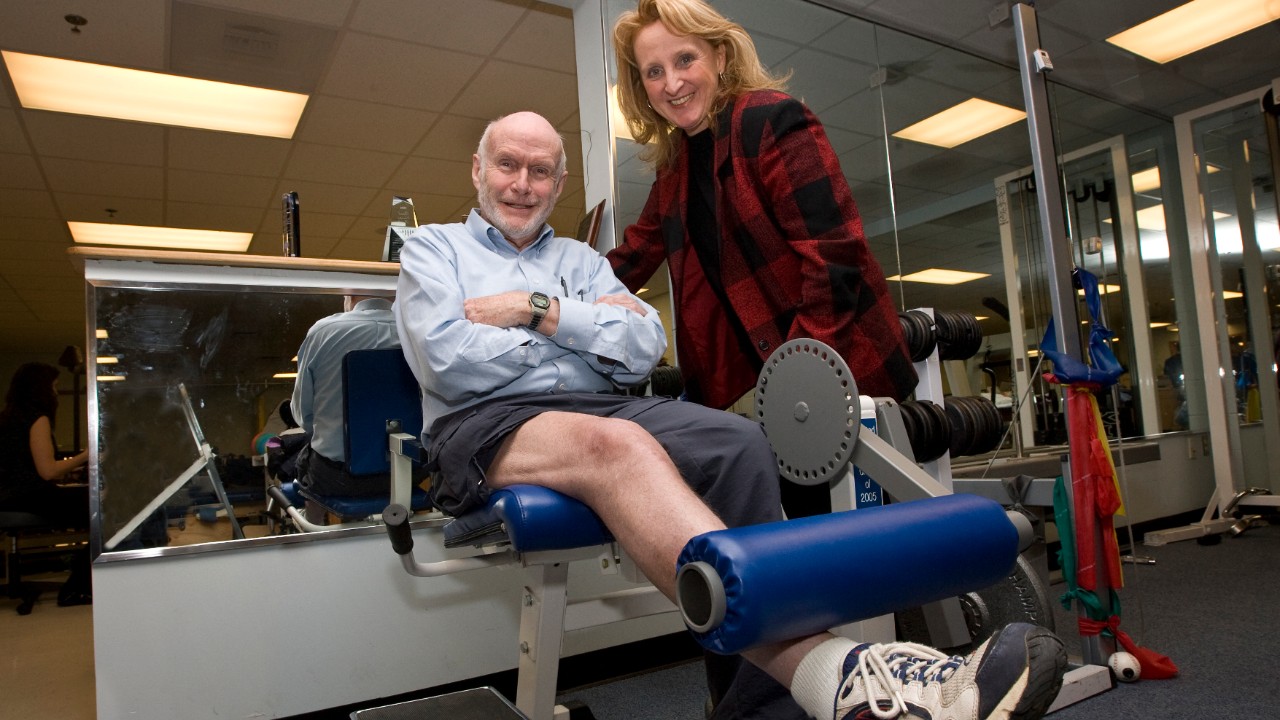


Rehabiliation research
June 02, 2016
UD researchers headline national conference on rehabilitation
Biomedical engineers, physical therapists, occupational therapists, psychiatrists, physicians and nurses all descended on Bethesda, Maryland, recently for a two-day conference on rehabilitation research. The National Institutes of Health (NIH) invited rehabilitation professionals from around the U.S. to discuss how best to move the field forward.
The first-of-its-kind gathering prominently featured the University of Delaware Department of Physical Therapy. In addition to several UD faculty members in attendance, researchers Cole Galloway, Lynn Snyder-Mackler and Gregory Hicks were invited as panelists.
“Rehabilitation research is still a relatively young profession,” explains Hicks. “The conference served an imperative need for our field — identify gaps and areas of focus for the future.”
Galloway was the first Blue Hen speaker. He headlined a panel discussing access to the ‘lived environment’ in research. A relentless advocate for those with mobility disabilities, Galloway addressed how low-cost, open-source technologies can be developed for people’s homes. He said he hopes funding can give more people access to assistive rehabilitation technologies.
“I am so impressed with the direction that our federal research agencies like NIH are taking,” Galloway said. “This conference, led by the National Center for Medical Rehabilitation Research, was a clear signal that high-impact rehabilitation research is a national priority.”
Lynn Snyder-Mackler, who runs the Delaware Rehabilitation Institute out of the STAR Health Sciences Complex, said she sees rehabilitation research headed in several different directions — simultaneously.
“Prevention of injury and re-injury, regeneration, participation and implementation are the keys,” said Snyder-Mackler. “Implementation of cutting end research into clinical practice is the challenge for our age.”
Hicks, who chairs the Department of Physical Therapy, conducts research on low back pain in older adults. So, the conference asked him to participate in a panel session focused on prevention of secondary disability to optimize health and function across the lifespan. Secondary disability refers to the onset of difficulties and functional limitations due to the presence of a primary condition such as low back pain. Once a person has long-standing, persistent pain, secondary disabilities can develop that interfere with typical life duties.
“It’s not just the pain itself anymore. At this chronic level, now you have limited function and limited ability to fully participate in everyday life,” said Hicks, who was recently appointed to NIH’s National Advisory Board on Medical Rehabilitation Research.
Rehabilitation researchers hope the conference can be a touchpoint for researchers to better communicate with each other. They hope the gathering will spur dialogue between disciplines and across the country. The University of Delaware’s prominent representation at this inaugural event positions it as a key academic health center for the future of rehabilitation research.
Contact Us
Have a UDaily story idea?
Contact us at ocm@udel.edu
Members of the press
Contact us at 302-831-NEWS or visit the Media Relations website

